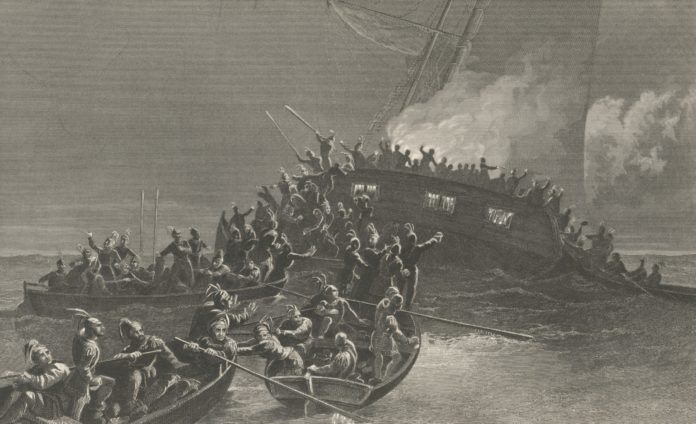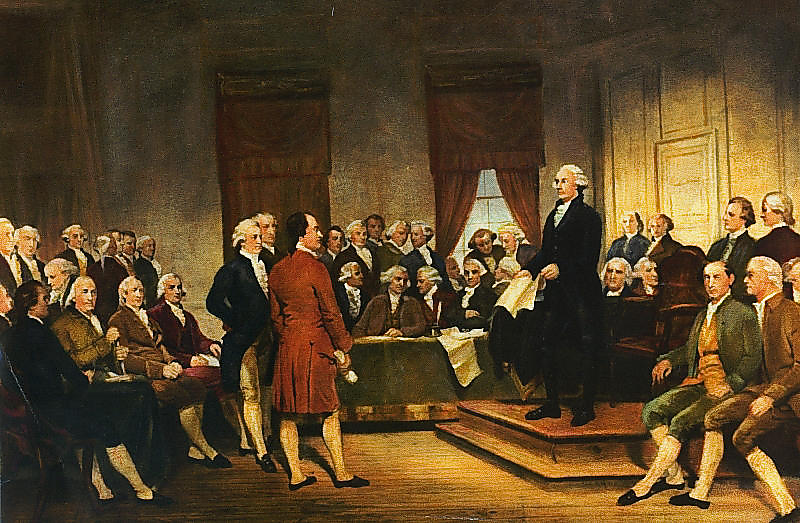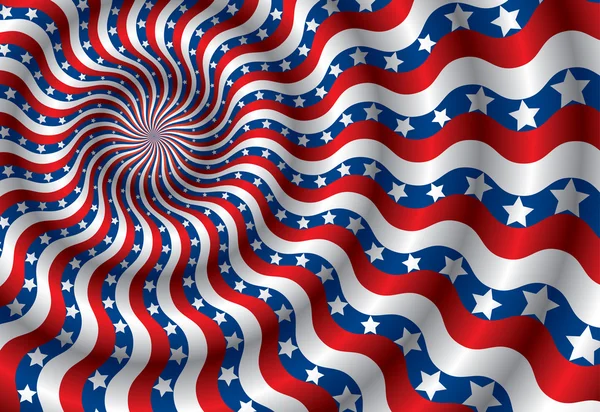As the saying goes, “drawing from the same well too often inevitably leads to an empty well.” This idiom has been around, in one form or another, for as long as there have been wells from which to draw. Across the expanse of humankind’s History, wherever too much power becomes concentrated too greatly into the hands of tyrants and dictators, the well of willingness among the subjugated to remain so inevitably runs dry. Yet for all the wisdom the history of mankind has provided us, it is the shock and outraged surprise of the despot, in the face of the Sovereign Individual’s uprisings that perpetually appear to have no limits.
In our book ” A User’s Guide To Our Imperfect Union” contributing author Vassar Bushmills and myself posited that:
“The relationship between a man’s benevolence and the exercise of his power over others resolves to an inverse proportion while the measures of his freedom and liberty are tied, exponentially, to the depths of his humility and Grace.”
In the face of Freedom convoys, mandate protests, government seizures of physical and financial resources of so-called dissidents, and the usurpation of Constitutionally-guaranteed rights and freedoms, history once more repeats itself and lays itself bear before the eyes of the despots.
Observing the swelling waves of Sovereign Individual uprisings across the globe, it is becoming quite clear that the well of willingness to be subjugated is running dry once more.
In search of the best way to look forward, in the direction we appear to be rapidly heading, it is well-advised to glance back at the last flashpoint that sparked the flames of freedom in the minds of Sovereign Individuals and stirred the coals of rebellion in their hearts.
In 1764, the British Prime Minister introduced the Stamp Act in order to raise revenue from the colonies. It was repealed two years later, but the colonists never forgot.
Six years after the repeal, in 1770, Lord Norton became Prime Minister and, three years later, he passed an act taxing tea in the colonies. The historical record tells us this new tax was not intended to generate revenue for the King or the British coffers but was meant, instead, to be used in order to bail out the East India Company, which was in deep financial trouble despite being a major player in the British economy.
Americans had been complaining for years about having to pay taxes to England despite there being no members of Parliament representing American interests in Great Britain. In fact, at least as far back as 1761, James Otis is credited with having reflected the resentment of American colonists when he coined this now- infamous anti-British slogan 15 years before the American Revolution would ultimately get underway:
“Taxation without representation is tyranny.”
On December 16, 1773, in Boston, Massachusetts, a group of people disguised as Mohawk Indians boarded a ship in Boston Harbor, owned by the British East India Company, and dumped 342 chests filled with tea into the water. According to Britannica, “[t]he Americans were protesting both a tax on tea (taxation without representation) and the perceived monopoly of the East India Company.” Thus did the words of James Otis become forever emblazoned on the heart of the American Spirit that remains with us today.
Roughly 16 months later, on April 19, 1775, the American Revolution began with the Battles of Lexington and Concord in the Massachusetts colony. Fifteen months after that, in Philadelphia, our founders declared independence from England and the tyrannical rule of King George III. The Declaration itself laid out America’s case for freedom, portraying the King as an inflexible tyrant who had squandered his right to govern the colonies. Some historical records, however, suggest that – in reality – the situation was more complex: Parliamentary ministers, not the crown, were responsible for colonial policies, though George ultimately failed to comprehend the gravity of the situation that Great Britain was facing with the colonies until it was too late.
We know well enough that America won her independence from the King and, despite the Herculean efforts of those wishing to “cancel” the American Nation today, seeking to lay claim to (and assume power and control over) her constituent parts in order to slake the thirst of their own vanities and self-indulgences, the nation remains – for now – the last best hope for the Sovereign Individual.
The American Constitution, as it can be “loosely” said about most of the western – style Representative Democracy Constitutions around the globe, codifies into law the relationship between Sovereign Individuals and the leaders they select to represent them in their National body politic. The dynamic this construct is intended to establish, almost exclusively, relies on two aspects of our species that are arguably the most vulnerable to our inherent vanities and self-indulgences; Trust and Honesty. A genuine conscience doesn’t hurt either. Unfortunately, three hundred thousand years old now, the Homo Sapien species has come no closer to perfecting these traits, despite the countless numbers of lives being lost in the effort to do so, leaving us but little choice other than to debate and negotiate and hold each other verifiably accountable for both our respective words and our deeds.
In the context of the American Constitution, we are offered a suggestion on how we might be able to sustain our focus to get at, and stay with, the pursuit up trust and honesty between the governing and the governed. It was Alexander Hamilton, writing as “Publius”, who said in the first Federalist Paper:
“It has been frequently remarked that it seems to have been reserved to the people of this country, by their conduct and example, to decide the important question, whether societies of men are really capable or not of establishing good government from reflection and choice, or whether they are forever destined to depend for their political constitutions on accident and force. If there be any truth in the remark, the crisis at which we are arrived may with propriety be regarded as the era in which that decision is to be made; and a wrong election of the part we shall act may, in this view, deserve to be considered as the general misfortune of mankind.”
The people of this country, by our conduct an example, have routinely proven that we will only tolerate, for so long, the corruption of our society and our political systems (either by accident or force) which are visited upon us every few generations. Examples of this are popping up all around us and the effectiveness of our response is easily measured by the desperate actions of the Leviathan that has lost sight, and respect, for the oath they swore to uphold and defend in our name and on our behalf. America will find her way back, through reflection and choice, by the strong arm of the ballot box, precisely to prevent the general misfortune of mankind. And it will be by the free will of Sovereign Individuals, casting off the despots and the tyrants and putting in their place those ready to do the hard fighting to restore the American promise.





